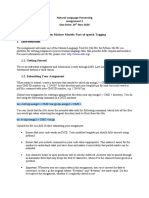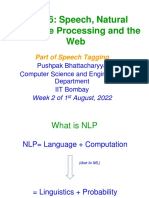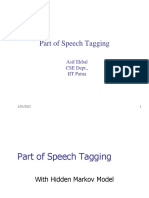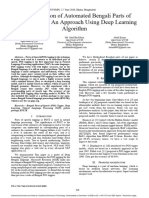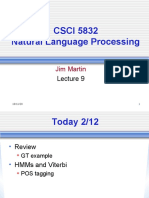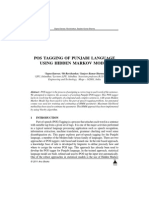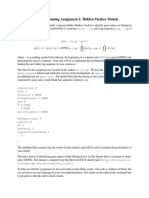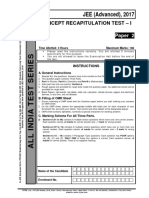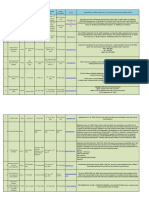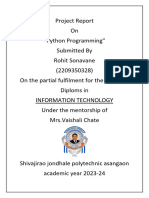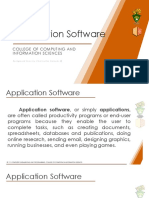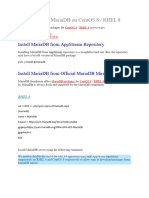0% found this document useful (0 votes)
67 views2 pagesCS563-NLP-2024 - Assignment 1
The document outlines an assignment to implement hidden Markov models for part-of-speech tagging. It provides details on estimating HMM parameters from training data, implementing bigram and trigram models, testing models with Viterbi decoding, and evaluating performance on a benchmark dataset.
Uploaded by
arjunCopyright
© © All Rights Reserved
We take content rights seriously. If you suspect this is your content, claim it here.
Available Formats
Download as PDF, TXT or read online on Scribd
0% found this document useful (0 votes)
67 views2 pagesCS563-NLP-2024 - Assignment 1
The document outlines an assignment to implement hidden Markov models for part-of-speech tagging. It provides details on estimating HMM parameters from training data, implementing bigram and trigram models, testing models with Viterbi decoding, and evaluating performance on a benchmark dataset.
Uploaded by
arjunCopyright
© © All Rights Reserved
We take content rights seriously. If you suspect this is your content, claim it here.
Available Formats
Download as PDF, TXT or read online on Scribd
/ 2












